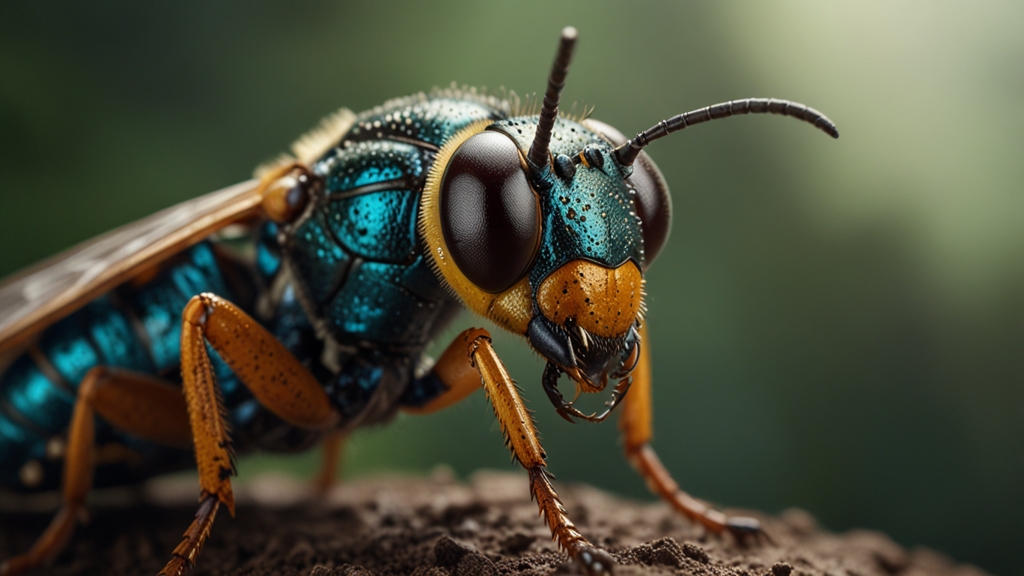The Insect Apocalypse: Are We Losing Our Most Important Allies?
The steady decline of insect populations globally has sparked concern among scientists, environmentalists, and the general public. Termed the "Insect Apocalypse," this phenomenon raises alarm because insects play crucial roles in our ecosystems. Their disappearance poses a severe threat to biodiversity, agriculture, and even human survival. But what’s causing this decline, and why should we be so concerned?
The Crux of the Crisis
Insects are the unsung heroes of our planet. They are vital for pollination, soil aeration, and as a food source for other wildlife. A study published in the journal Biological Conservation in 2019 estimated that over 40% of insect species are declining and a third are endangered. The extinction rate of insects is eight times faster than that of mammals, birds, and reptiles. Factors such as habitat loss, pollution, climate change, and the widespread use of pesticides significantly contribute to this decline.
"Insects are the little things that run the world," said renowned biologist E.O. Wilson. "Without them, the giant natural mechanisms of our planet would grind to a halt."
Pollination: The Lifeblood of Agriculture
One of the most critical roles insects play is pollination. Bees, butterflies, and other insects pollinate roughly 75% of the flowering plants globally, including most fruits, vegetables, and crops. Without these pollinators, the productivity of crops could plummet, leading to food shortages and increased prices. The United Nations' Food and Agriculture Organization (FAO) points out that pollinators contribute to 35% of global agricultural land.
"The loss of pollinators could critically affect our diets," notes an FAO report. "Fruits, nuts, and vegetables could be replaced by staple crops like rice, corn, and potatoes, leading to a significant reduction in essential vitamins and nutrients in our diets."
Soil Health and Nutrient Cycling
Insects are instrumental in maintaining soil health. Beetles, ants, and earthworms break down organic matter, aiding decomposition and nutrient cycling. This process enriches the soil, enhances its fertility, and helps plants grow. If these insects vanish, the entire nutrient cycle could be disrupted, leading to poorer soil quality and, consequently, weaker plant growth.
The Ripple Effect on Ecosystems
The insect decline doesn't only affect plants and soil; it has a cascading impact on entire ecosystems. Many animals, including birds, amphibians, and small mammals, rely on insects as a primary food source. A decrease in insect populations can lead to the decline of these predators, causing a ripple effect that disrupts the balance of ecosystems worldwide.
For example, a significant reduction in insect-eating birds has already been observed in several regions. These birds play a crucial role in controlling insect populations, and their decline could lead to an overabundance of certain insect species, further destabilizing the ecosystem.
Steps Toward a Solution
Tackling the insect apocalypse requires a multifaceted approach. Here are some potential steps we can take:
- Reducing Pesticide Use: Limiting the use of harmful pesticides and adopting organic farming practices can help protect insect populations.
- Habitat Restoration: Initiatives to restore natural habitats, such as planting wildflowers and creating insect-friendly gardens, can provide safe havens for insects.
- Climate Action: Addressing climate change by reducing greenhouse gas emissions can mitigate some of the temperature and weather changes affecting insect populations.
- Public Awareness: Educating the public about the importance of insects and how to protect them can foster a collective effort to save these vital creatures.
Conclusion
The insect apocalypse is not just an environmental issue; it's a crisis that affects every layer of our ecosystem, our food supply, and even our own survival. By recognizing the importance of insects and taking active steps to protect them, we can work toward preserving the delicate balance of nature. The time to act is now, for the sake of our planet and future generations.











